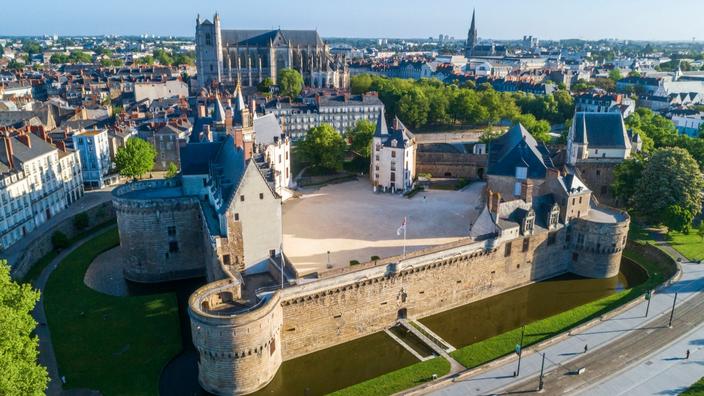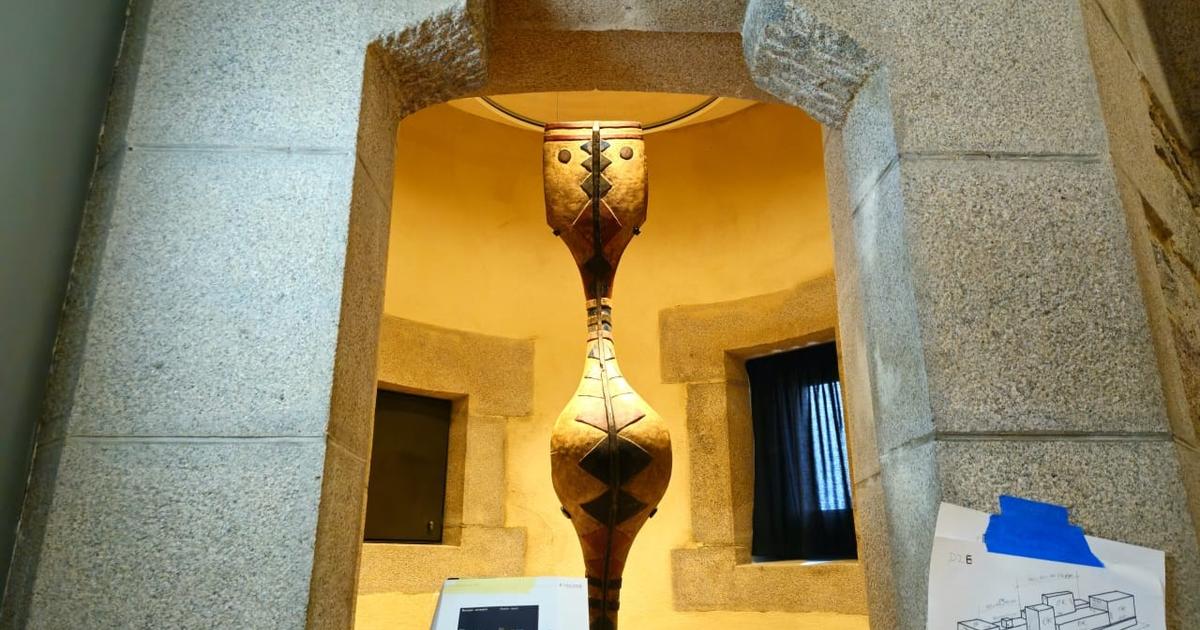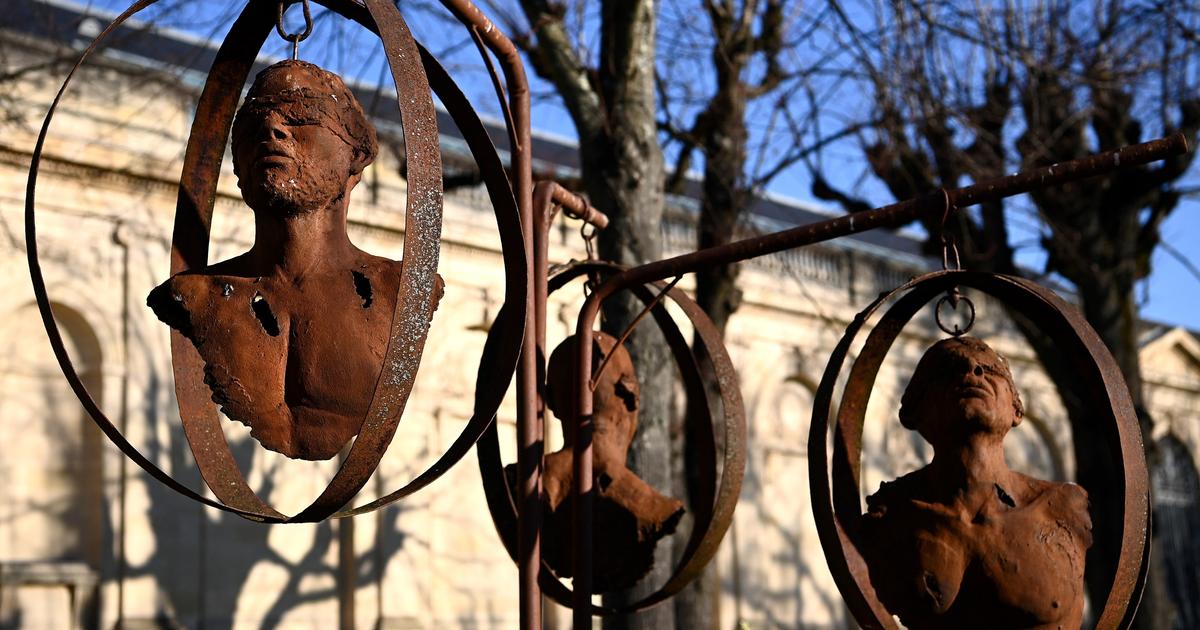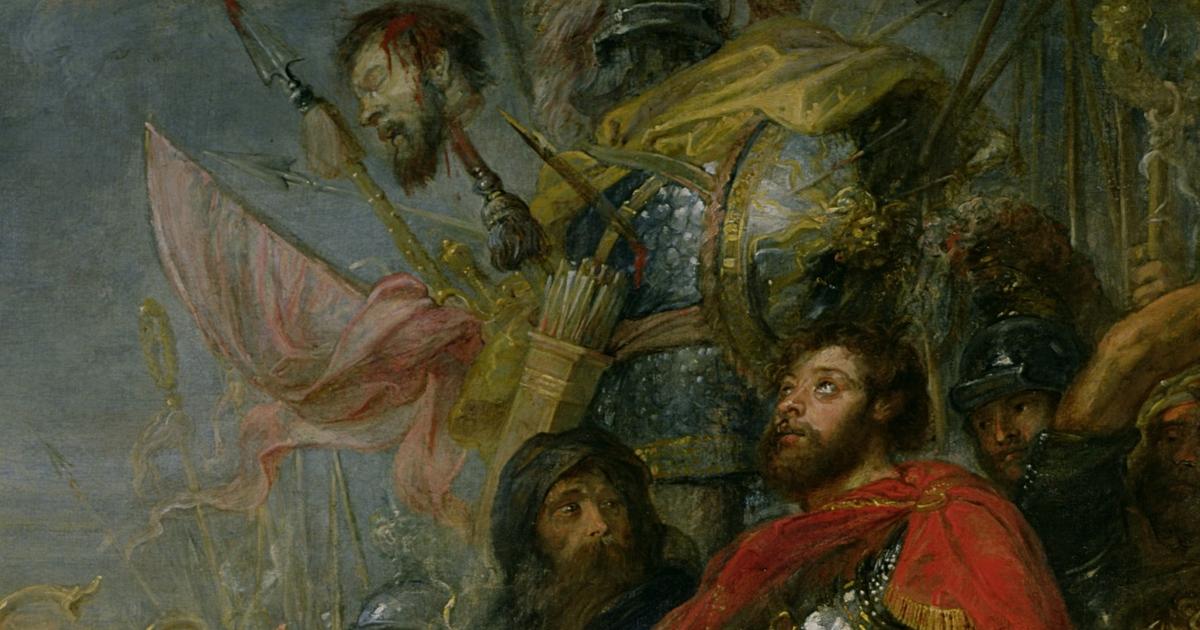From May 19, an exhibition at the castle of the Dukes of Brittany will offer two African views, by a Beninese artist and an Ivorian historian, on the collections of the Nantes History Museum on slavery.
"The objective is to take a fresh look at our collections by decolonizing our thinking"
, explained, during a press visit, Krystel Gualdé, scientific director of the museum and curator of the exhibition "Decolonial expression (s) ( s) # 2 ”.
To discover
Discover our file on Napoleon's bicentenary
To read also: Jean Pigozzi: "I left with the objective of making the largest collection of contemporary African art"
The first edition of the exhibition was held in 2018 with the Congolese artist Moridja Kitenge. Organizing this event in this city, which was the first French slave port before the - definitive - abolition of slavery in 1848, is a strong symbol. Until November 14, the courtyard of the castle and the museum rooms will host twenty pieces by contemporary Beninese artist Romuald Hazoumé, whose works made from recycled materials are exhibited all over the world.
"I have a duty, as an artist, to tell my people that we must take our share of responsibility in the history of slavery to build our resilience and solve today's problems
," said the plastic surgeon to Agence France-Presse.
We must stop saying that the West is solely responsible, because for there to be buyers of slaves, there had to be sellers. "
Voices "little heard and accepted"
The Ivorian historian Gildas Bi Kakou, for his part, was invited to comment on several pieces in the museum in the light of his research on the slave trade in Côte d'Ivoire, which existed before the arrival of Europeans.
"This research is not encouraged in Africa because it hinders for political reasons and social harmony"
, indicated the researcher, author of a series of cartels entitled
Another historical look
.
Read also: Gaël Faye: “Africa is no longer a colony.
There is a decolonization of minds to operate ”
The historian underlines that the slaves came from the coasts but also from the interior of the country, via the rivers, with the support of local populations who levied a right of passage, bidding the
"cost"
of the slave to the thread of its journey.
“The voices of this artist and this historian are still little heard and accepted on the African continent,”
said Krystel Gualdé.
Several monumental works are made from cans used in the trafficking of adulterated gasoline between Nigeria and Benin. Transported by men at the risk of their lives, until recently they supplied the majority of the country with gasoline. Another centerpiece, placed at the entrance of the museum, takes the form of a dice, formed by flip-flops left by migrants before their deadly crossing in the Mediterranean, and questions the price to pay for a better life.















